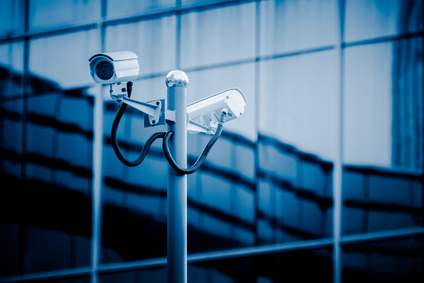The Loss of Privacy in Mass Surveillance is Worrying
A I • Mar 02,2018


The age of surveillance is upon us. Video surveillance infrastructure is rapidly developing. Street security cameras helped to identify 2005 London Underground bomber and the 2013 Boston marathon bomber, satellite-based cameras are tracking typhoons and ice level decrease in the Arctic. The Chinese even use surveillance cameras to check on people stealing toilet paper in public toilet next to Beijing’s Temple of Heaven while lecturers in Peking University use surveillance cameras to check whether students are bored.
Thanks to artificial intelligence and mass surveillance systems, privacy is fading into the background. China leads the world in street-level surveillance. More than 172 million surveillance security cameras are installed in the country, which is three times as many as are operating in the USA. The global video surveillance market is estimated at around $47 billion and China occupies 43% of the market.
At the same time, on a per capita basis, only US and UK are countries with the most surveillance cameras covered. London leads the way, as first street surveillance systems were installed in the capital of Great Britain in the early 90s, right after two massive truck bombings, done by IRA. Today thousands of automatic number plate recognition cameras are helping local police.
When the terrorist attacks happened, UK government won broad public support for comprehensive monitoring because it was important to know what’s going on London streets. Over a decade ago Chicago’s Mayor Daley was similarly supportive, pointing out to the citizens of the American city that cameras prevent crimes and the mayor and local police departments are not spying on anybody.
Surveillance has happened without any meaningful public or political debate whatsoever, according to the UK’s former deputy prime minister Nick Clegg. The fact of availability of surveillance is not so disturbing, comparing to the process of integrating surveillance with today’s new digital technologies, which is not visible to citizens. For example, an unknown for many people a company called Planet, based in San-Francisco, launched four satellites in 2013.
Today it operates 202 satellites or 17% of the 1,700 satellites orbiting Earth. It has overtaken the US government as the owner of the largest number of functioning satellites orbiting the Earth. By comparison, China has 205 satellites in orbit. For example, this company can see new nuclear facilities in North Korea. But the work of Planet can be intrusive and harmful to individual privacy. It already helped Texas-based insurance company to identify homeowners, who were disclosing information on newly installed swimming pools, which entails increased insurance. The company showed 500 swimming pools in a neighbourhood of 1,500 properties – most of them undisclosed.
China’s facial recognition technology now leads the world, helping police to identify and catch criminals. Video surveillance systems were installed everywhere, from airports to ATMs. Also, this technology was introduced in smartphones e-payments. For example, KFC allows to pay for burgers and fries with “smile and pay” technology, through face recognition camera. Also, local government started national project Xue Liang, which is intended to connect security cameras that already scan roads, shopping malls and transport hubs with private cameras on compounds and buildings, and integrate them into one nationwide surveillance and data-sharing platform.
Facial recognition and artificial intelligence technologies will be used to analyze the mass of video footage, track suspects and spot suspicious behaviours. It’s also linked with ‘social credit’ score system, in order to consider fellow citizens trustworthy.
Author: AI.Business
If you like our articles, please subscribe to our monthly newsletter:
[mc4wp_form id=”763″]